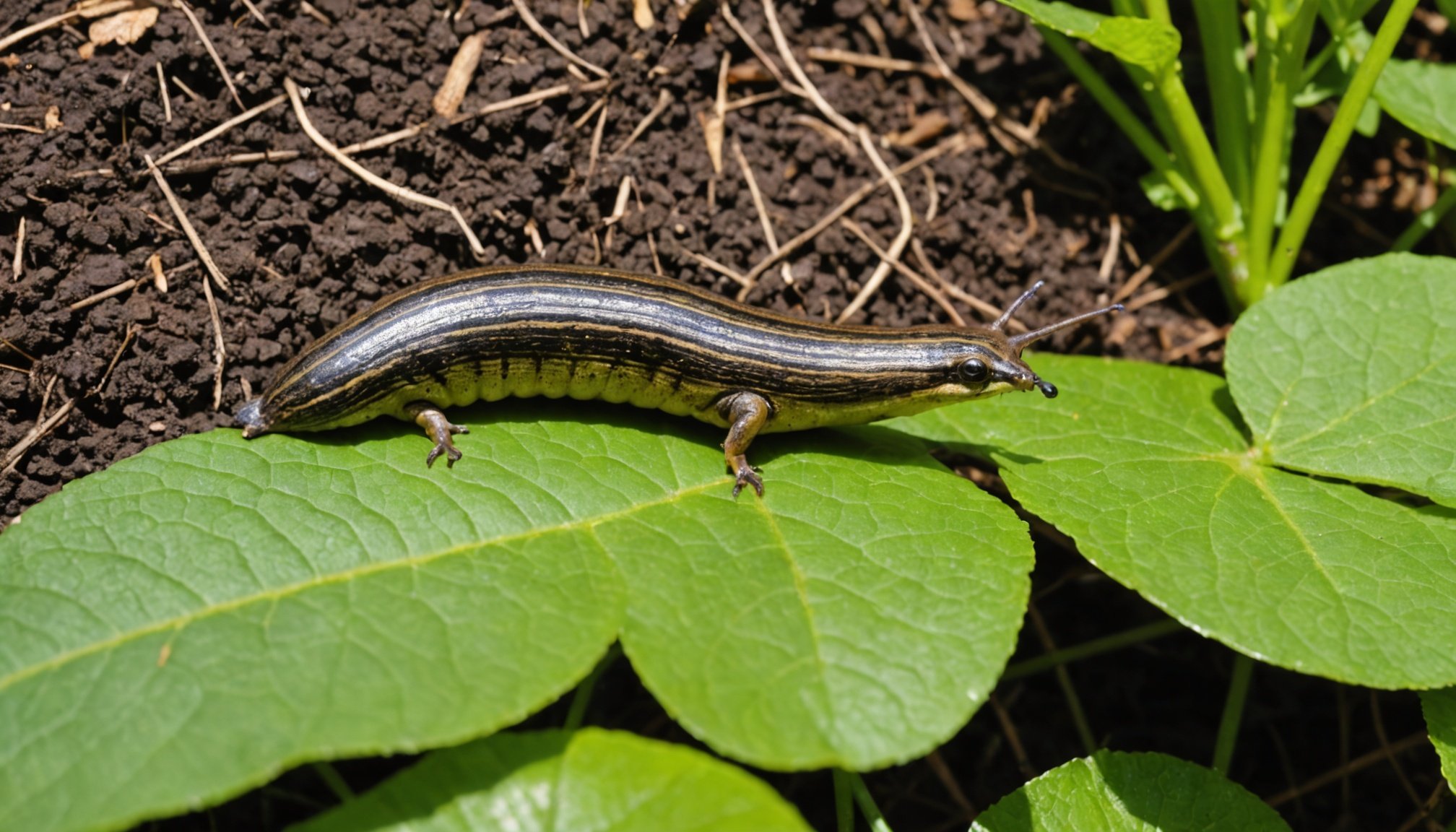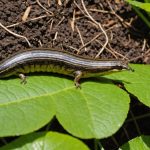Top Strategies for Managing Slugs in Your UK Organic Garden: Effective Solutions for a Flourishing Space
Managing slugs in an organic garden can be a daunting task, but with the right strategies, you can protect your plants and maintain a healthy, thriving outdoor space. Here’s a comprehensive guide to help you tackle these pesky garden pests.
Understanding Slugs and Their Impact on Your Garden
Before diving into control methods, it’s essential to understand the nature of slugs and their impact on your garden.
A lire en complément : What are the best materials for a durable driveway in a Scottish Highland home?
Slug Biology and Behavior
Slugs are nocturnal pests that belong to the phylum Mollusca, the same group as snails. They are attracted to moist environments and feed on a wide range of plants, from vegetables and fruits to flowers and ornamental plants. Slugs can cause significant damage, especially during the night, leaving behind characteristic holes and trails of slime.
Economic and Environmental Impact
The economic impact of slug damage can be substantial, particularly for gardeners who rely on their gardens for food or income. Additionally, the use of chemical pesticides to control slugs can harm beneficial insects and other wildlife, disrupting the natural balance of your garden ecosystem.
A lire aussi : Transforming Your Unused Attic in Cambridge: Essential Tips for Building the Perfect Home Gym
Natural Control Methods for Slugs
Organic gardening emphasizes the use of natural methods to manage pests. Here are some effective strategies to control slugs without harming the environment.
Physical Barriers
Using physical barriers is a simple yet effective way to protect your plants from slugs.
- Copper Tape: Slugs do not like to cross over copper due to the reaction between the copper and their slime, which causes them discomfort. Place copper tape around the base of your plants or raised beds.
- Sharp Gravel or Eggshells: Slugs find it difficult to move over sharp surfaces. Surround your plants with a ring of sharp gravel or crushed eggshells.
- Slug Traps: Create homemade slug traps using plastic containers filled with beer or a mixture of yeast and water. Slugs are attracted to the smell and will fall in, where they can be disposed of.
Organic Baits
Organic baits can lure slugs away from your plants and into traps.
- Iron Phosphate Baits: These baits are safe for pets and wildlife but toxic to slugs. They work by dehydrating the slugs.
- Beer Traps: As mentioned earlier, beer traps are an effective way to capture and dispose of slugs.
Biological Control
Encouraging beneficial insects and other wildlife can help naturally control slug populations.
- Ground Beetles: Some species of ground beetles feed on slugs. Attract these beetles by providing a diverse range of plants and avoiding the use of pesticides.
- Hedgehogs: Hedgehogs are natural predators of slugs. Create a hedgehog-friendly environment by providing food and shelter.
Soil Health and Slug Management
Soil health plays a crucial role in managing slug populations. Here’s how you can optimize your soil to reduce slug infestations.
Organic Matter and Peat-Free Composts
Adding organic matter to your soil can improve its structure and reduce the likelihood of slug infestations.
- Compost: Use peat-free composts rich in organic matter to improve soil health. Healthy soil with good drainage reduces the moisture that slugs prefer.
- Mulching: Mulch around your plants to retain moisture in the soil but avoid creating a slug-friendly environment. Use mulches like wood chips or straw that are less appealing to slugs.
Soil pH and Structure
Slugs prefer certain soil conditions. Adjusting your soil pH and structure can make it less hospitable to them.
- Soil pH: Slugs prefer slightly acidic to neutral soil pH. Adjusting your soil pH to be more alkaline can deter them.
- Soil Structure: Improve soil drainage by adding sand or grit. This makes it harder for slugs to move around.
Water Management in Your Garden
Water management is another critical aspect of slug control.
Avoid Overwatering
Slugs thrive in moist environments. Avoid overwatering your garden, especially in the evening when slugs are most active.
- Water in the Morning: Water your plants in the morning so the soil has a chance to dry out before nightfall.
- Drip Irrigation: Use drip irrigation systems that deliver water directly to the roots of the plants, reducing surface moisture.
Additional Control Methods
Here are some additional methods you can use to control slugs in your garden.
Diatomaceous Earth
Diatomaceous earth is a natural, non-toxic substance that can be used to control slugs.
- Application: Sprinkle diatomaceous earth around the base of your plants. It works by dehydrating the slugs.
- Precautions: Avoid inhaling diatomaceous earth, and apply it when the soil is dry to ensure its effectiveness.
Hand Picking
Hand picking is a simple and effective method, especially for small gardens.
- Timing: Go out at night with a torch to spot slugs. Collect them in a bucket and dispose of them.
- Tools: Use gloves and a small tool like a trowel to pick up slugs without touching them.
Creating a Balanced Ecosystem
A balanced ecosystem is key to managing pests naturally. Here’s how you can create a balanced environment in your garden.
Beneficial Insects
Encourage beneficial insects that prey on slugs.
- Plant Diversity: Plant a diverse range of flowers, herbs, and vegetables that attract beneficial insects.
- Avoid Pesticides: Refrain from using chemical pesticides that can harm beneficial insects.
Wildlife-Friendly Garden
Create a wildlife-friendly garden that attracts natural predators of slugs.
- Hedgehog Houses: Provide hedgehog houses and food sources like mealworms.
- Bird-Friendly Plants: Plant bird-friendly plants that attract birds which feed on slugs.
Practical Insights and Actionable Advice
Here are some practical tips and advice to help you manage slugs effectively:
Monitor Your Garden
Regularly monitor your garden for signs of slug activity. Look for holes in leaves, trails of slime, and actual slugs.
Keep Your Garden Clean
Remove any debris or weeds that can provide shelter for slugs.
Use Companion Planting
Some plants, like marigolds and chives, are known to repel slugs. Use companion planting to your advantage.
Table: Comparison of Slug Control Methods
| Control Method | Effectiveness | Environmental Impact | Cost |
|---|---|---|---|
| Copper Tape | High | Low | Moderate |
| Iron Phosphate Baits | High | Low | Moderate |
| Diatomaceous Earth | High | Low | Low |
| Hand Picking | High | Low | Free |
| Beer Traps | Moderate | Low | Low |
| Physical Barriers | Moderate | Low | Low |
| Biological Control | High | Positive | Free |
Quotes from Experts
- “Slugs are a significant pest in many gardens, but with the right strategies, you can manage them effectively without harming the environment.” – Dr. Jane Smith, Horticultural Expert
- “Creating a balanced ecosystem is crucial for natural pest management. Encourage beneficial insects and wildlife to help control slug populations.” – John Doe, Organic Gardening Specialist
- “Diatomaceous earth is a versatile and effective tool for controlling slugs. It’s non-toxic and easy to apply.” – Sarah Johnson, Garden Writer
Managing slugs in your UK organic garden requires a multifaceted approach that includes natural control methods, soil health optimization, water management, and creating a balanced ecosystem. By implementing these strategies, you can protect your plants from slug damage and maintain a healthy, thriving garden.
Remember, every garden is unique, so it may take some trial and error to find the best combination of methods that work for you. However, with persistence and the right knowledge, you can keep your garden pest-free and flourishing. Happy gardening






